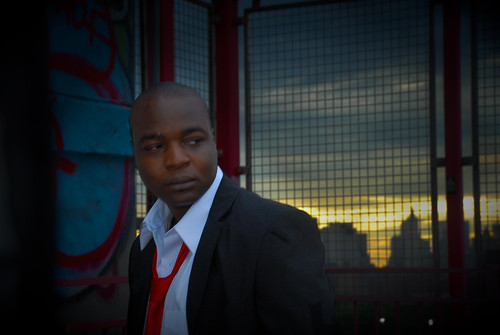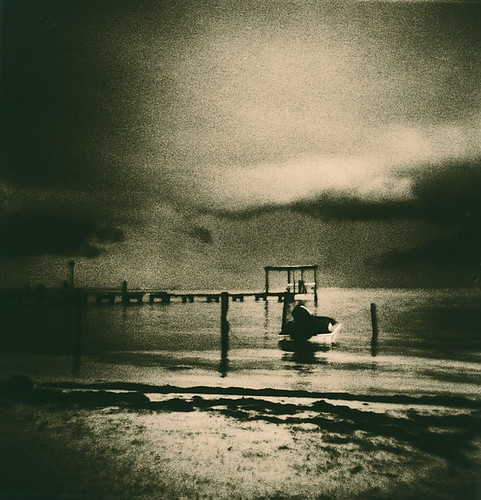While most people blamed the state of affairs in the back alleys on the gang, even Kenton Wallace, when he was alive, could tell you that things were always bad. The families that lived there had been put there; set aside like a pen or a set of keys that were sure to be lost, by the government after a hurricane had destroyed their previous homes. They’d built ‘temporary’ shelters; quick, piecemeal wooden bungalows that would keep the rain and other elements out, until they could properly rebuild their old neighborhood. Years later, their old neighborhoods were memorial parks dedicated to those lost in that devastating storm. Their temporary shelters had become permanent homes. They all shared the same square plot of low, swampy land, which soon became a city block even though the swamp was still there, in the back yard that all these houses shared.
When it rained water invaded the bungalow houses, barging in off the streets right in through their front doors, then settling in a little too comfortably among the rest of the muck at the back. Inevitably, flies did the same, spawning mere feet away from the kitchens, sucking the life right out of them at night, spreading disease. if the flies were bad, then the people who acted like flies were even worse. Just like the mosquitoes, they rutted in full view of kitchen windows, and at night they preyed on the people who lived there. Kenton Wallace could simply wave his hands over his wife’s swollen belly in the evenings and swatted them when they landed on her thighs. In fact he took great pleasure in doing so. He tried swatting a man one night. The experience was considerably less satisfying.
He’d come into the kitchen for something cold to drink and as he stood naked in his own house he spotted a curtain move without breeze to blow it. The curtain took off running, bursting through the broken back door it had come in through, and Kenton Wallace chased after it. So great was his rage that he couldn’t be bothered to make a fist. He swatted at the man with a heavy, flat palm. The first time Kenton Wallace swatted him, the thief dropped a toaster oven. The second time, it was a blender. The third time that Kenton Wallace’s palm, tough as tree bark from his job at the saw mill, came down on the back of the burglar’s head the thief swung round and dropped a knife deep into the naked chest of his pursuer. Kenton’s wife found him dead and, dropping to her knees, felt a warm water draining over her legs and puddle in a rut in the yard. Junie-J, the oldest of the Back-a-alley gang, was twelve years old when Junie-K, the youngest, was born.
The Junies grew older, and, tired of mosquitoes and men who acted like mosquitoes, they began filling the yards. They brought dirt by the wheelbarrow full, from schoolyards, from river beds, from most places that were none of your damn business. One day, Junie-L and Junie-C came bursting in with loads of sand they’d stolen from a construction site, along with a sign that read ‘Future Site of Barclay’s Bank’. “We rich now!” they’d said. “Dis da good ting!”
They spread the sand in all the ruts and mosquito nests. They leveled off the back yards and shored up the front yards too. It was the boys that made the swamp disappear but, now free to walk from one house to the other, it was the women who’d actually formed the pathways and alleys.
The Junies started wearing black gloves and carried cricket bats and clubs. “Time fi mek wi staat do some dirty work, fellas.” Junie-J had told them while handing out the cloves. “But that nuh means we fi get dirty too.” They didn’t ask the mosquitoes where they came from. If they found one, they swatted it. They treated the strange faced men they found in the alleys the same way. Occasionally, one of the Junies would leave the Alleys at night and not return. Occasionally the police would come wandering through the alleys; either looking for one of the Junies to take away for years at a time, or to tell his family that he’d been taken by someone else. There was always someone willing to take his place though; always some young bwai who wanted oh so badly to be a Junie.
Pretty soon there were no invaders in the yards and houses. The only ones walking in through front doors unannounced were the people that had grown up there. The only flies people found in their yards were lit roaches. Junie-B bought a ticket to L.A. the day before the Police came to the Alleys looking for him. The day after that, Jun-Jun was conceived in full view of his grandmother’s kitchen window.




































